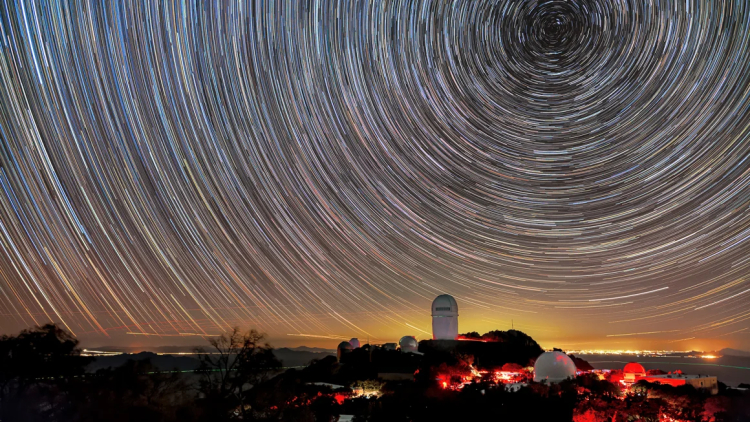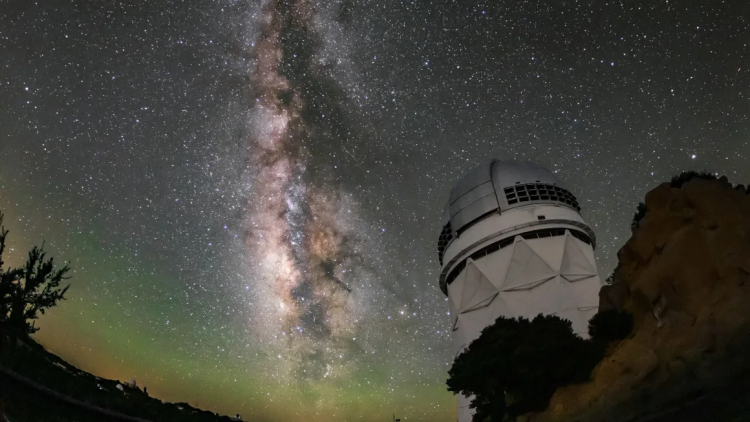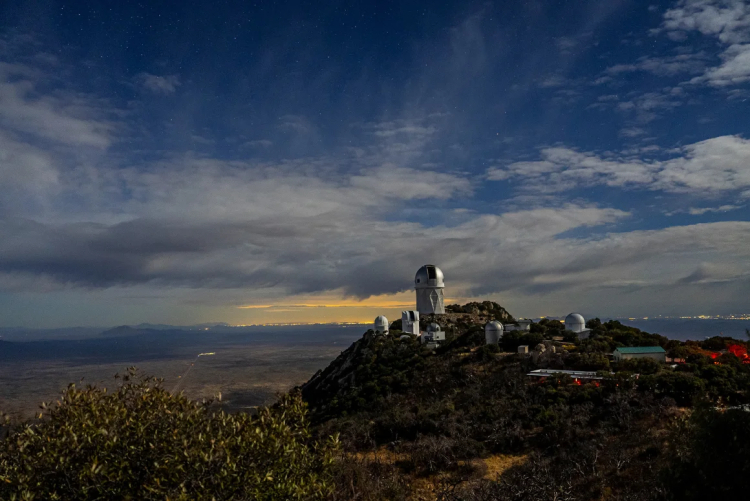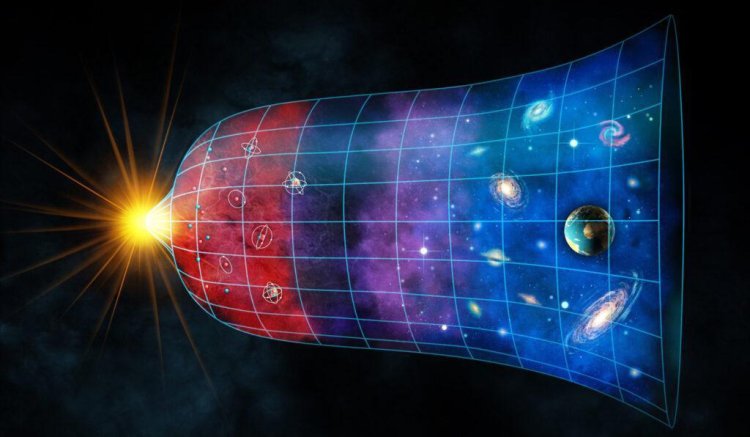Dark Energy’s Big Twist: Is the Universe’s Fate Changing?
New DESI data suggests dark energy is evolving, potentially altering our understanding of the universe

Introduction
The universe has long been a vast and mysterious frontier, with dark energy playing a crucial role in its expansion. However, recent data from the Dark Energy Spectroscopic Instrument (DESI) survey suggests that dark energy may not be constant as previously believed. Instead, it could be evolving over time, a revelation that could challenge the standard model of cosmology.
What Is Dark Energy?
Dark energy is the unknown force driving the accelerated expansion of the universe. It constitutes about 70% of the total energy in the cosmos, yet scientists have little understanding of its nature.
For decades, dark energy was thought to be a "cosmological constant", meaning it remained unchanged throughout the history of the universe. However, new evidence from DESI’s groundbreaking observations hints that this force may be altering, potentially weakening over billions of years.

New Findings from the DESI Survey
The DESI collaboration is one of the largest cosmic surveys ever conducted. Housed at the Nicholas U. Mayall 4-meter Telescope at Kitt Peak National Observatory in Arizona, this advanced instrument has:
-
Measured light from nearly 15 million galaxies and quasars so far.
-
Created one of the most detailed 3D maps of the universe.
-
Allowed astronomers to observe how dark energy has influenced cosmic expansion over the past 11 billion years.
Shocking Results: A Changing Dark Energy?
Researchers analyzing DESI data suggest that dark energy may not be static. David Weinberg, an astronomer at Ohio State University, called these findings “another mind-blowing change” to our understanding of the cosmos.
A Possible Weakening of Dark Energy
Mustapha Ishak-Boushaki, an astrophysicist at the University of Texas at Dallas, noted that if dark energy continues to weaken, it could mean that:
-
The expansion of the universe might slow down instead of accelerating.
-
In some models, the universe could eventually collapse rather than expand indefinitely.
This raises fundamental questions about the future of the cosmos and whether our current physics models need an update.
How Dark Energy May Be Weakening Over Time
Scientists measure cosmic expansion using baryon acoustic oscillations (BAO)—patterns in the distribution of matter across space. DESI has provided the most precise measurements yet of these patterns, which suggest that dark energy’s influence might be diminishing.
Key Evidence Supporting This Theory
-
Comparing Early and Late Universe Data:
-
DESI’s measurements reveal a mismatch between early-universe models and present-day expansion rates.
-
This discrepancy hints at a more complex nature of dark energy than previously thought.
-
-
Redshift Observations:
-
The further an object is, the older its light.
-
By analyzing these redshifts, researchers noticed changes in the rate of cosmic expansion, supporting the idea that dark energy may not be constant.
-
-
Multiple Lines of Evidence Point in the Same Direction:
-
Supernova studies, gravitational lensing, and cosmic microwave background radiation also show hints of evolving dark energy.
-

Implications for Cosmology and Physics
Could This Change Our Understanding of the Universe?
If dark energy is indeed evolving, it could:
-
Challenge Einstein’s cosmological constant theory, requiring a revision of fundamental physics.
-
Lead to new models of gravity and quantum mechanics.
-
Suggest the presence of new forces or particles that scientists have yet to discover.
Possible Future Scenarios for the Universe
Depending on how dark energy changes, the universe might:
| Scenario | Outcome |
|---|---|
| Dark energy weakens further | The universe's expansion slows, possibly halting. |
| Dark energy strengthens | The universe continues expanding at an accelerated rate. |
| Dark energy oscillates | Expansion rates fluctuate over time, introducing unknown variables in cosmic evolution. |
Future Research and Space Observations
Several upcoming space missions will help refine our understanding of dark energy:
-
Spec-S5 (Stage 5 Spectroscopic Experiment)
-
Expected to analyze 10 times more galaxies than DESI.
-
Will study both dark energy and dark matter in greater detail.
-
-
The Vera C. Rubin Observatory
-
Set to map supernovae to create a more complete cosmic expansion history.
-
-
NASA’s Nancy Grace Roman Space Telescope (2027)
-
Will provide high-precision data on dark energy’s evolution over time.
-
-
ESA’s Euclid Space Telescope
-
Already revealing stunning new insights into dark matter and dark energy interactions.
-
A New Era in Cosmology?
Michael Levi, director of DESI, states that understanding dark energy is crucial because it will shape the ultimate fate of our universe. Future observations may confirm whether dark energy is indeed evolving or if another unknown cosmic force is at play.

Conclusion
The latest DESI data presents compelling evidence that dark energy may not be a fixed force but an evolving one. If confirmed, this discovery could rewrite our understanding of the universe’s fate and challenge existing physics theories.
While there’s still much to learn, one thing is certain—cosmologists are on the brink of a major scientific revolution. The coming years will be critical in determining whether dark energy is truly changing and what that means for our cosmic future.
FAQs
1. What is dark energy?
Dark energy is the mysterious force driving the accelerated expansion of the universe, making up about 70% of its total energy.
2. What did the DESI survey discover?
DESI data suggests that dark energy may be weakening over time, challenging the idea that it is a constant force.
3. What happens if dark energy weakens?
If dark energy continues to weaken, the universe’s expansion could slow down, stop, or even reverse in a distant future.
4. Will future telescopes confirm these findings?
Yes, upcoming missions like Spec-S5, the Rubin Observatory, Euclid, and the Roman Space Telescope will provide further insights into dark energy’s behavior.
5. Could dark energy’s evolution lead to new physics?
Yes, if dark energy is proven to evolve, it could require new physics theories beyond Einstein’s relativity, reshaping our understanding of the cosmos.
???? Want to stay updated on the latest cosmic discoveries? Keep following Kiksee for more in-depth astronomy and space science insights! ????
What's Your Reaction?























